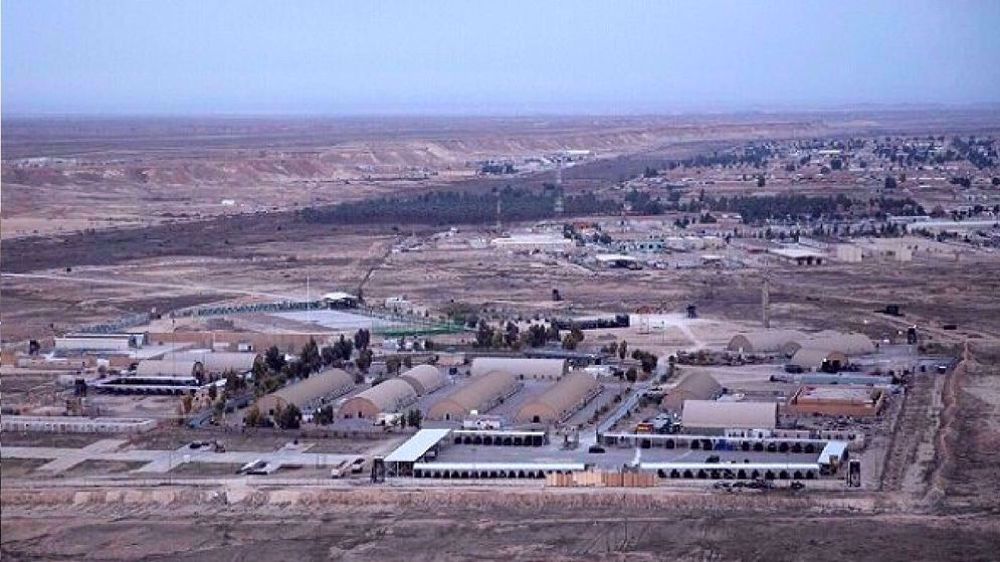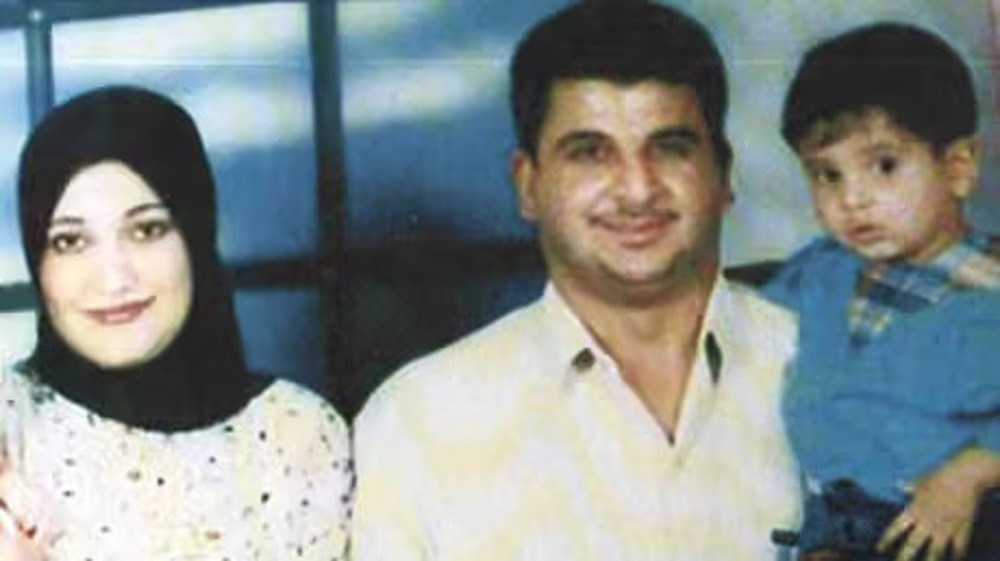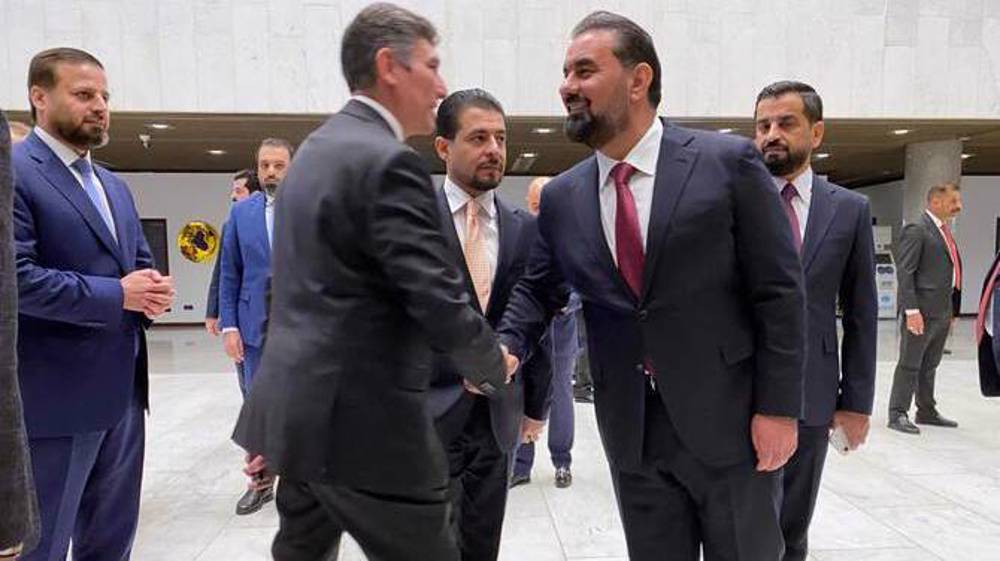‘International and regional conspiracy’ behind Iraq unrest: Political figure
The wave of recent unrest in Iraq stems from an “international and regional conspiracy” against the government and people in the Arab country, a senior Iraqi politician says, adding that the violence and chaos in Iraq is aimed at bringing the former dictatorship back to power.
Sa’ad al-Muttalibi, an Iraqi parliamentarian and member of the State of Law Coalition in Baghdad, made the remark during a Friday edition of Press TV’s The Debate program while commenting on Iraqis’ move to have taken to the streets of the capital for the second day in a row as a sign of support for the country’s most prominent Shia cleric, Grand Ayatollah, Ali al-Sistani.
The top cleric has condemned the riots and vandalism during the country's recent anti-government rallies, while at the same time, supporting demonstrators' right to peaceful protest to make their demands heard and urging them to disown saboteurs and rioters.
Sistani said on Friday that violence and chaos would only hinder true reforms as demanded by ongoing anti-corruption and economic protesters in Iraq, calling on demonstrators to counter violent rioters.
Sistani had earlier warned of enemy plots seeking to create civil strife and bringing back “an era of dictatorship” in Iraq, stressing that recent incidents were part of a larger push to destabilize the country.
“There is definitely interference; a huge amount of money in the last months was received in Baghdad, over 30 million dollars in a few days entered into Iraq and was distributed among those who are supporting the demonstrations and that’s a huge amount of money to be spread and provided for certain elements within the demonstrators,” Muttalibi told Press TV on Friday.
“You can watch some of the regional press and you can imagine the amount of hatred and the amount of propaganda against Iraq and against what is happening in Iraq and supporting the idea that the regime must all fall down and should be replaced again by the Baathists and the dictators of the past,” he added.
Asked about the role of Saudi Arabia in the Iraqi unrest, Muttalibi said, “Saudi Arabia plays a certain part, or may be financing that part, but the actual design and manufacturer of the conspiracy is back in the occupied Palestine… Israel has been planning this for years alongside the Americans and Saudis, just they are not intelligent enough to create something like that but have the enough money to finance that.”
Laith Marouf, an activist and political commentator in Beirut, was the other panelist invited to The Debate program, who pointed to foreign-backed ‘plots to disintegrate Iraq by sowing chaos in the country’.
“The idea of cutting up Iraq into pieces has been active since 1991, if not earlier than that… So, the plot to break up Iraq and make sure that it’s not a viable state that can compete with imperial tools in the region and other imperial plans for all the Arabs in general is ongoing,” Marouf said.
On Thursday, a mass rally was held in the capital, Baghdad to show support for the top cleric's earlier calls for peaceful protests.
The protesters also chanted slogans and carried placards decrying US, Israeli and Saudi meddling in the country. Similar protests were held in many other cities on Friday.
The developments come as nearly two months of protests have, primarily, rocked Baghdad and the southern areas of Iraq. The protesters have been expressing frustration with a failing economy and have demanded reforms.
The rallies have, however, turned into violent confrontations on numerous occasions.
Since October 1, more than 300 people have lost their lives in the country, according to the Iraqi parliament’s human rights commission.
VIDEO | Press TV's news headlines
Hamas: Israel escalating ceasefire violations in Gaza
Venezuela's government declares unwavering unity behind Maduro
VIDEO | Global outcry over Venezuela president abduction
Iran keeps wheat import subsidies despite cutting other food supports
Venezuelan military stands with acting president after US kidnapping of Maduro
VIDEO | Press TV's news headlines
VIDEO | Protesters in Toronto slam US kidnapping of Venezuelan president












 This makes it easy to access the Press TV website
This makes it easy to access the Press TV website